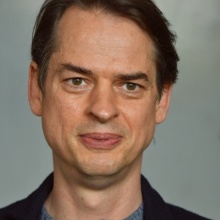Contact
+49 711 685 84814
+49 711 685 82487
Email
Seidenstr. 36
70174 Stuttgart
Deutschland
Subject
Alongside research on social aspects of the energy system and the creation of scenarios, he works on agent-based simulations and the topics of lifestyle and life satisfaction.
2022
- Hauser, W., & Kropp, C. (2022). Sammlung und Nutzung digitaler Gesundheitsdaten: große Aufgeschlossenheit, aber nicht ohne Bedenken. . Krankenhaus-IT-Journal, Article 3.
- Hottenroth, H., Sutardhio, C., Weidlich, A., Tietze, I., Simon, S., Hauser, W., Naegler, T., Becker, L., Buchgeister, J., Junne, T., Lehr, U., Scheel, O., Schmidt-Scheele, R., Ulrich, P., & Viere, T. (2022). Beyond climate change : Multi-attribute decision making for a sustainability assessment of energy system transformation pathways. Renewable & sustainable energy reviews, 156, Article March. https://doi.org/10.1016/j.rser.2021.111996
- Schmidt-Scheele, R., Hauser, W., Scheel, O., Minn, F., Becker, L., Buchgeister, J., Hottenroth, H., Junne, T., Lehr, U., Naegler, T., Simon, S., Sutardhio, C., Tietze, I., Ulrich, P., Viere, T., & Weidlich, A. (2022). Sustainability assessments of energy scenarios: citizens’ preferences for and assessments of sustainability indicators. Energy, Sustainability and Society, 12, Article 1. https://doi.org/10.1186/s13705-022-00366-0
2021
- Naegler, T., Becker, L., Buchgeister, J., Hauser, W., Hottenroth, H., Junne, T., Lehr, U., Scheel, O., Schmidt-Scheele, R., Simon, S., Sutardhio, C., Tietze, I., Ulrich, P., Viere, T., & Weidlich, A. (2021). Integrated Multidimensional Sustainability Assessment of Energy System Transformation Pathways. Sustainability, 13, 5217. https://www.mdpi.com/2071-1050/13/9/5217
2020
- Pregger, T., Naegler, T., Weimer-Jehle, W., Prehofer, S., & Hauser, W. (2020). Moving towards socio-technical scenarios of the German energy transition---lessons learned from integrated energy scenario building. Climatic Change, 162, Article 4. https://doi.org/10.1007/s10584-019-02598-0
- Senkpiel, C., Dobbins, A., Kockel, C., Steinbach, J., Fahl, U., Wille, F., Globisch, J., Wassermann, S., Droste-Franke, B., Hauser, W., Hofer, C., Nolting, L., & Bernath, C. (2020). Integrating Methods and Empirical Findings from Social and Behavioural Sciences into Energy System Models—Motivation and Possible Approaches. Energies, 13, Article 18. https://doi.org/10.3390/en13184951
- Senkpiel, C., & Hauser, W. (2020). Systemic Evaluation of the Effects of Regional Self-Supply Targets on the German Electricity System Using Consistent Scenarios and System Optimization. Energies, 13, Article 18. https://doi.org/10.3390/en13184695
- Weimer-Jehle, W., Vögele, S., Hauser, W., Kosow, H., Poganietz, W.-R., & Prehofer, S. (2020). Socio-technical energy scenarios: state-of-the-art and CIB-based approaches. Climatic Change, 162, Article 4. https://doi.org/10.1007/s10584-020-02680-y
- Weimer-Jehle, W., Vögele, S., Hauser, W., Kosow, H., Poganietz, W.-R., & Prehofer, S. (2020). Socio-technical energy scenarios: state-of-the-art and CIB-based approaches. Climatic Change, 162, Article 4. https://doi.org/10.1007/s10584-020-02680-y
2019
- Kost, C., Längle, S., Shammugam, S., Garcia, K. R., Hauser, W., Biener, W., & Senkpiel, C. (2019). AutGrid - Chancen und Risiken der Netzautarkie in Deutschland; Modellgestützte Analyse und Bewertung der Auswirkungen einer Netzautarkie von Regionen im deutschen Energiesystem : Schlussbericht : Laufzeit des Vorhabens: 01.05.2015-31.12.2018, Chancen und Risiken der Netzautarkie in Deutschland, Modellgestützte Analyse und Bewertung der Auswirkungen einer Netzautarkie von Regionen im deutschen Energiesystem, Chances and risks of grid self-sufficiency in Germany - Model-based analysis and evaluation of the effects of grid autarky in the Germany energy system. Fraunhofer Institut für Solare Energiesysteme, ISE; https://www.tib.eu/de/suchen/id/TIBKAT%3A1684914191
- Pregger, T., Naegler, T., Weimer-Jehle, W., Prehofer, S., & Hauser, W. (2019). Moving towards socio-technical scenarios of the German energy transition—lessons learned from integrated energy scenario building. Climatic Change, 162, Article 4. https://doi.org/10.1007/s10584-019-02598-0
2017
- Weimer-Jehle, W., Prehofer, S., Vögele, S., Buchgeister, J., Hauser, W., Kopfmüller, J., Naegler, T., Poganietz, W.-R., Pregger, T., Rösch, C., & Scholz, Y. (2017). Kontextszenarien. Ein Konzept zur Behandlung von Kontextunsicherheit und Kontextkomplexität bei der Entwicklung von Energieszenarien und seine Anwendung in der Helmhlotz-Allianz ENERGY-TRANS. In Die Energiewende verstehen - orientieren - gestalten : Erkenntnisse aus der Helmholtz-Allianz ENERGY-TRANS. Hrsg.: J. Schippl (pp. 257–294). Nomos Verlagsgesellschaft.
2016
- Weimer-Jehle, W., Buchgeister, J., Hauser, W., Kosow, H., Naegler, T., Poganietz, W.-R., Pregger, T., Prehofer, S., von Recklinghausen, A., Schippl, J., & Vögele, S. (2016). Context scenarios and their usage for the construction of socio-technical energy scenarios. Energy, 111, 956–970. https://doi.org/10.1016/j.energy.2016.05.073
2015
- Deutschle, J., Hauser, W., Sonnberger, M., Tomaschek, J., Brodecki, L., & Fahl, U. (2015). Energie-Autarkie und Energie-Autonomie in Theorie und Praxis. Zeitschrift Für Energiewirtschaft, 39, Article 3. https://doi.org/10.1007/s12398-015-0160-5
2013
- Hauser, W. (2013). Analysis and agent-based modelling of lifestyle aspects influencing the residential energy demand in France and Germany. Universität Stuttgart. https://doi.org/10.18419/OPUS-5647
- Reeg, M., Nienhaus, K., Roloff, N., Pfenning, U., Deissenroth, M., Wassermann, S., Hauser, W., Weimer-Jehle, W., Kast, T., & Klann, U. (2013). Weiterentwicklung eines agentenbasierten Simulationsmodells (AMIRIS) zur Untersuchung des Akteursverhaltens bei der Marktintegration von Strom aus erneuerbaren Energien unter verschiedenen Fördermechanismen. Deutsches Zentrum für Luft- und Raumfahrt e.V. (DLR). https://elib.dlr.de/82808/
2012
- Hauser, W., Evora, J., & Kremers, E. (2012, May). Modelling Lifestyle Aspects Influencing The Residential Load-Curve. ECMS 2012 Proceedings Edited By: K. G. Troitzsch, M. Moehring, U. Lotzmann. https://doi.org/10.7148/2012-0058-0063
- Reeg, M., Nienhaus, K., Roloff, N., Hauser, W., Wassermann, S., Weimer-Jehle, W., Klann, U., & Kast, T. (2012, September). AMIRIS -- AN AGENT-BASED SIMULATION MODEL FOR THE ANALYSIS OF MARKET INTEGRATION OF RENEWABLE ENERGY UNDER VARIOUS POLICY FRAMEWORKS. 12th IAEE European Energy Conference. https://elib.dlr.de/77334/
- Wassermann, S., Reeg, M., & Hauser, W. (2012). Auswirkungen der Marktprämie auf die Akteure der Direktvermarktung -- ein agentenbasierter Modellansatz. Energiewirtschaftliche Tagesfragen, 62, Article 9. https://elib.dlr.de/77333/
2010
- Grün, C., Hauser, W., & Rhein, T. (2010). Is Any Job Better than No Job? Life Satisfaction and Re-employment. Journal of Labor Research, 31, Article 3. https://doi.org/10.1007/s12122-010-9093-2
Wolfgang Hauser studied Sociology at the University of Bamberg and Université de la Réunion. He gained his doctorate from the University of Stuttgart with a thesis on the relationship between private energy consumption and lifestyle.
His work focuses on the socio-technical analysis of the energy system and scenario building. In addition to the classical methods of empirical social research, agent-based modeling and cross-impact balance analysis are mainly applied. His main research interests in the field of CIB are the creation of hybrid scenarios and statistical scenario analysis.


